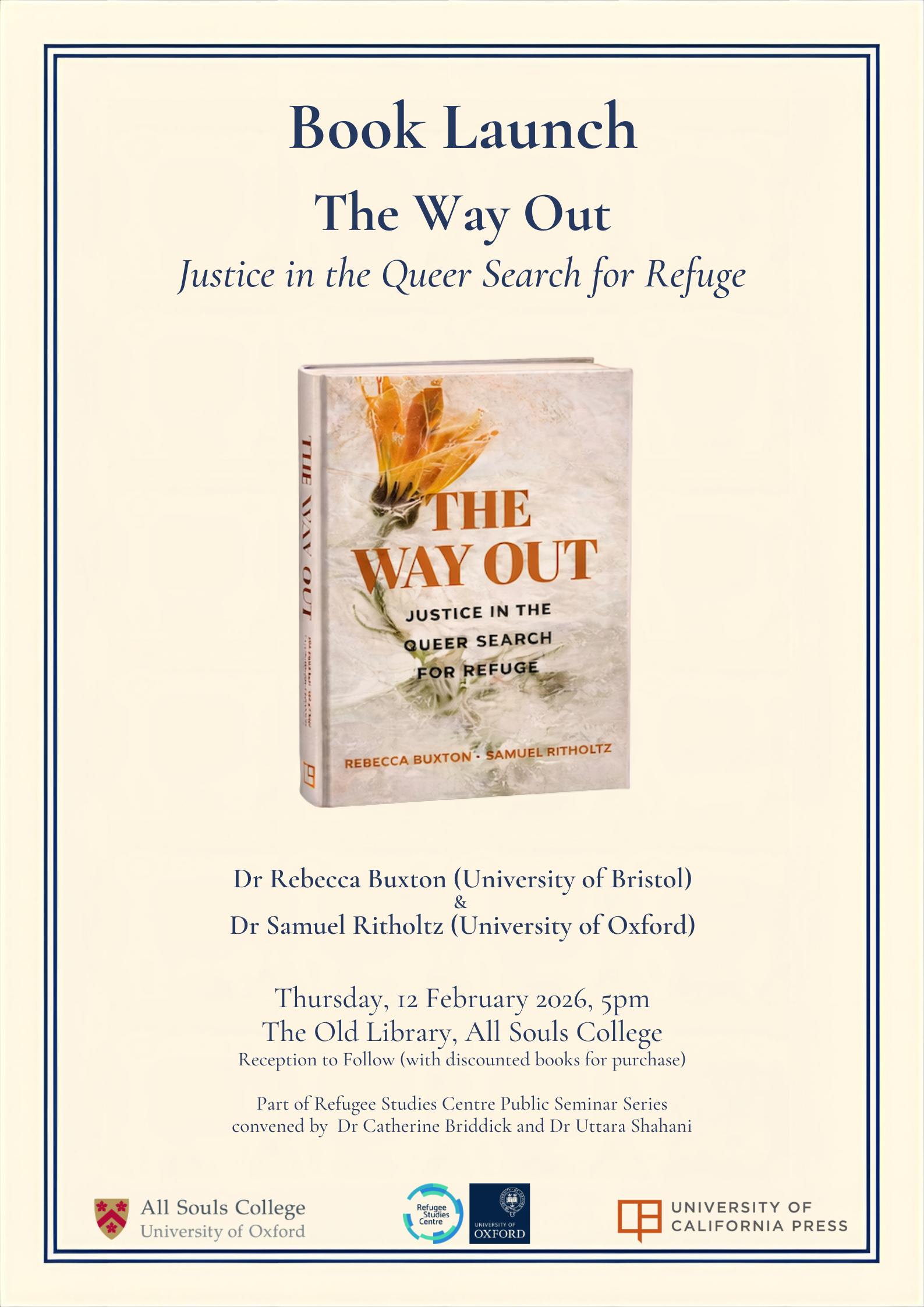Authors: Dr Rebecca Buxton, University of Bristol, and Dr Samuel Ritholtz, University of Oxford
Location: The Old Library, All Souls College
Followed by a reception with discounted books for purchase
Part of the Refugee Studies Centre Public Seminar Series convened by Dr Catherine Briddick and Dr Uttara Shahani
